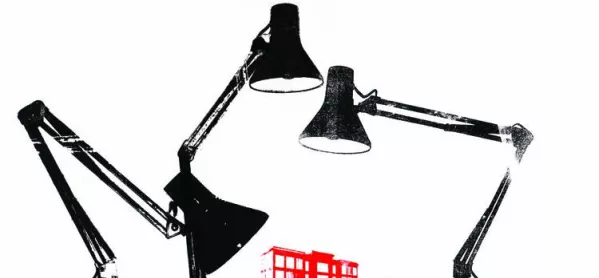The Labour Party wants to abolish Ofsted – but what would a replacement look like? If Ofsted were to go, a much better form of accountability would be necessary.
For the past three years, a group of teachers, lecturers and researchers have tried to reform Ofsted by holding meetings with inspectors, running conferences, launching a petition and writing articles for the press. And as a result, we’ve come up with an alternative: an Education Improvement Agency (EIA).
Background: Labour plans to abolish and replace Ofsted
News: WATCH: Gordon Marsden says IfATE is a 'balls-up'
Opinion: Ofsted reveals FE research reference group
The EIA would be a democratic organisation of local and national inspectors, with the former assessing the quality of education for all students in a given area rather than individual institutions in order to prevent some schools gaining an advantage by excluding pupils. The latter would be called in when serious problems were found and to ensure comparable standards across regions.
The agency's main role would be to encourage the system to become ever more self-improving by inspecting multi-academy trusts and all forms of partnership and cooperation between institutions. Inspectors would produce a detailed, rounded narrative showing how strengths could be built on and identifying what support was needed to cope with weaknesses. The four-point grading scheme would be dropped.
Restoring trust
The EIA's approach would be that of appreciative inquiry (AI), which shifts the focus from blaming individuals to improving systems by restoring trust to professionals, by matching challenge with dialogue and support and by stressing cooperation over competition. AI would see professional learning by teachers, senior managers and inspectors as the main engine of educational improvement.
Inspection would consist of self-evaluation and independent peer reviews, which would allow for reciprocal challenge, and these reviews would be moderated by senior staff from outside the area.
The financial resources of institutions would be taken into account, a more equitable complaints procedure would be introduced and Ofsted’s responsibility for safeguarding would not be forgotten.
The EIA, as an organisation independent of government, would evaluate the effects of government policies, collect evidence on controversial issues (such as the inspection of schools with challenging intakes and the positive and negative impacts of inspection), and make recommendations for future policies.
One early task would be to advise on how the workload of teachers could be reduced to stem the flood of those leaving the profession and to boost recruitment. Excessive accountability is the main cause of unmanageable workloads.
The EIA’s reports would be made public and would provide detailed information on sampling. For example, what percentage of staff and students were inspected and how the sample was selected.
The inspection of further education would be based on an understanding of the different challenges of vocational education and on a deep knowledge of the rich vein of research done by, in and for FE.
These proposals would create a system of intelligent accountability that was just, humane and developmental in which all the partners could flourish – students, teachers and inspectors.
Frank Coffield is emeritus professor of education at the UCL Institute of Education





